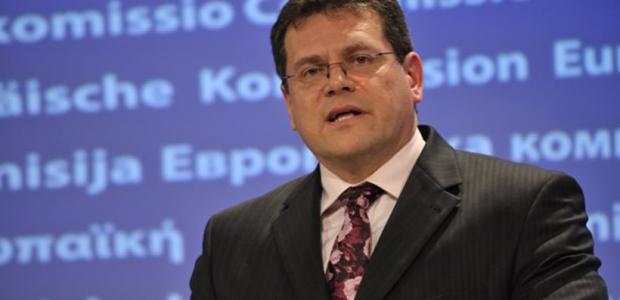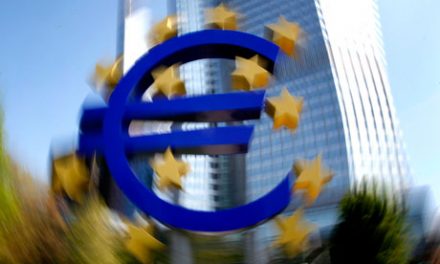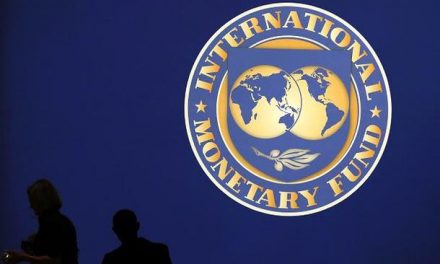by Clare Taylor, EnergyPost
Before the next European elections in 2019, Maroš Šefčovič , the European Commission’s Vice-President for the Energy Union, wants to have a new legal framework in place which will “bring in the most comprehensive and deepest transformation of energy systems in Europe, since the [industrial revolution] one hundred and fifty years ago.”
In an exclusive interview with Energy Post, he says that the success of the Energy Union project “will decide the place of Europe on the geopolitical and economic map of the 21st Century”. Renewables, decentralized energy, digitalization and smart grids will be the “backbone of the new modern economy in Europe.” On the controversy over Nord Stream 2, Gazprom’s pipeline project, Šefčovič says he wants to resolve the issue through “negotiations”.
A former Slovak diplomat, Maroš Šefčovič comes across as a charming and forceful character. “Brussels is not for everyone, it’s really for European enthusiasts, because the life here is extremely demanding,” he says, in an interview with Energy Post conducted in December.
Šefčovič has worked in Brussels for the past fourteen years: initially at Slovakia’s Permanent Representation to the European Union, then from 2009-2010 as a Commissioner for Education, Training, Culture and Youth, and from 2010 as Vice-President of the European Commission for Interinstitutional Relations and Administration.
Since 2014, Šefčovič has served as Vice-President for Energy Union, a strategy announced by the European Commission in February 2015 to “ensure secure, sustainable, affordable and competitive energy” across the European Union. Ushering in a host of new legislation, including the recent Clean Mobility and Clean Energy packages, the European Commission’s Energy Union strategy sets the rules of the game for transition to a low carbon Europe.
“I have never seen a commercial project to be so hotly debated by the top leaders of the EU, on so many occasions and for such a long time” (on Nord Stream 2)
“What I like about the job is that it is about much more than energy,” says Šefčovič. “It came from [European Commission president] Juncker’s idea to have a much more horizontal, cross-cutting approach in energy policy, which means I am working with a team of fourteen commissioners in my Energy Union portfolio. If I have to sum up what the job is about: it is making sure that we are energizing and modernizing the European economy.”
“In previous Commissions, there has always been a tension between climate policy and industrial policy, with the main concern being that overdoing it on climate action will impact negatively on industry and Europe’s global competitiveness. But we simply had to change the way that we work, and treat all the actions in this area under one umbrella, which is the Energy Union,” says Šefčovič.
National assets
Building consensus across the different policy areas is a big part of the job. Before starting to draft new legislation, “it’s very important to have input from all the key commissioners – energy, climate, environment, competition, trade, social affairs, regional and urban policy. When we’re talking external policy, Federica Mogherini is involved – just to make sure that we understand each other, and what for them the key political priorities are,” explains Šefčovič. “About half way through the process we do the same again to see if everyone is comfortable with what is being proposed. Through this process we eliminate many of the tensions between different portfolios which have been so visible sometimes.”
One of the five “dimensions” of the Energy Union strategy is a fully integrated internal energy market. However, particularly in the electricity market, problems with cross-border cooperation persist. How does Šefčovič perceive the apparent lack of impact of previous legislation?
“I think it’s evolving: we do have to respect the granular approach and prudence of the ministers. When we are negotiating, in the end they use this golden argument: ‘but when the lights go out, I lose my job!’ And I understand that,” says Šefčovič.
“But we want to make sure that this will never happen, by ensuring that Member States are not reliant on national assets alone. We should have a regional approach, and last night’s European Council discussions show that we are really moving in that direction, and I think we will see more ambition on regional cooperation by the end of the trialogues,” he says.
Nord Stream 2
In Europe’s gas market, the proposed pipeline project Nord Stream 2continues to be controversial. Šefčovič comments: “This project raised political issues – including energy security, respect for EU law and for our energy strategies – to the highest level. I know the project promoters present the project as a purely commercial one, but I have never seen a commercial project to be so hotly debated by the top leaders of the EU, on so many occasions and for such a long time. So, it’s very clear that this is a special project.”
“What we have highlighted from the beginning is, that from an energy security perspective we want to have diversification of supply, we want to have new sources, new routes and new suppliers,” says Šefčovič. “But we also have this bad experience from 2009,” he notes, referring to the Russian-Ukrainian gas dispute which led to an interruption of supplies. This was followed in 2015 by the European Commission’s (DG Competition) ongoing inquiry into Gazprom for abuse of its position as the dominant gas supplier in a number of Central and Eastern European countries.
“I believe that the dynamics will become even faster because we are at a tipping point in the development curve” (on renewable energy)
“Another important factor is that this project brought to the forefront a very detailed legalistic discussion on how comprehensively our legislation is covering offshore pipelines. That has become the central argument for both the proponents and the opponents of the project. To deal with such a politically and legally complex and sensitive project, where there is a collision of legal norms, and we have such a lot of political concerns on this project, I believe that the best way to try and resolve it is through negotiations,” says Šefčovič.
The European Commission has recently proposed changing the Gas Market Directive to include import pipelines from third countries, a move which would make EU regulations, such as unbundling and third-party access rules, applicable to Nord Stream 2. Commenting on the how the proposals are faring, Šefčovič says: “The European Parliament is very enthusiastic, and I expect to see a formal adoption of the approach in January or February. I also got very positive reactions from at least half of the Member States, including prime ministers from Nordic countries and Baltic countries.”
New rules
Much of the legal framework for the Energy Union is proposed in the Clean Energy for all Europeans legislative package, which the European Commission published on 30 November 2016. Says Šefčovič: “As of February 2018, we will start the trialogues on the last remaining pieces of legislation. Some of them are already in place, for example on energy security, which makes us much less vulnerable than we were a few years ago. So, I want before the next European elections [in 2019] that we can say that there is a new legal framework which brings in the most comprehensive and deepest transformation of energy systems in Europe, since the [industrial revolution] one hundred and fifty years ago. Moving away from fossil fuels, embracing renewables and pushing for decentralized energy, going away from rigid centralized structures to digital and smart grid solutions and making this the backbone of the new modern economy in Europe.”
Included in the Clean Energy package are new rules in the form of the Energy Union governance regulation, designed to ensure that climate and energy 2030 targets will be met.
Regarding the targets, Šefčovič says: “I’m 100% sure that we will deliver, because we have a very good track record. I still remember how controversial the 2020 targets were at the time that they were set, and how many Member States were telling us ‘this will ruin industry in Europe, this will never happen, this is too ambitious’ – and now we are in 2017 and most of these targets are already achieved.”
“Despite all the criticisms that we could do more, I think that our legislative framework for climate is really the most progressive in the world”
“Personally, I think we will overachieve the 2030 targets, especially for renewables. Every week there is news about how renewables are getting cheaper: it’s happened so fast that we have to completely revise our modelling. I believe that the dynamics will become even faster because we are at a tipping point in the development curve,” he adds.
The new Energy Union governance system also proposes National Energy and Climate Plans (NECPs), in which Member States detail goals, policies and measures for each dimension of the Energy Union (energy security; the internal energy market; energy efficiency; decarbonisation of the economy; and research, innovation and competitiveness). “Member States are developing their own mid-term strategies, in the NECPs, with a vision of where each country should be by 2030. So, now we have the global legal framework, represented by the Paris Agreement, but also a new European legal framework which the NECPs are a part of,” says Šefčovič.
Throughout the negotiations on the Clean Energy package, a recurring feature of the debates has been narrowly defined national interests undermining proposals aimed at achieving common European climate and energy objectives.
Commenting on this aspect of the discussions, Šefčovič says, “Of course, it’s very frustrating on many occasions, but I’ve been in this business long enough to become more resilient in these situations, although I’m not sure that it actually gets any easier. I know usually how this is being played, and how important it is to keep the eye on the ball until the last minute, because until the last trialogue is signed off you’re still negotiating and you’re still pushing for the best result.”
“The final outcome is always better than it seems during the process. So, despite all the criticisms that we could do more, I think that our legislative framework for climate is really the most progressive in the world,” he says.
A European century
“In Europe, we are very privileged in one particular aspect which you may not find in other major economies, and that is that we have the strongest public support for our climate policies,” says Šefčovič, referring to results from a 2017 Eurobarometer survey on climate change that show that 74% of EU citizens see climate change as a very serious problem, and 80% believe that climate and energy policy action, along with increased energy efficiency, will be good for Europe’s economy.
Šefčovič says: “People want to breathe cleaner air and have cleaner water, and they are putting a lot of pressure on national governments, on city administrations and on us – and that makes our job easier.”
“We will be able to benefit from our early mover advantage and profit from all the investment in support of the energy transition and fostering renewables”
“For example, as when we had such difficult discussions as we did yesterday with the ministers, who are understandably more cautious and prudent when it comes to these matters, we can tell them ‘but this is something that people like, this is something they will support. If you do this you can be assured that it will be supported, and that otherwise you may be criticized for not doing more and not doing enough’.
“That is our privileged position in Europe which allows us to be leaders in this respect, and I think people know that and they support it,” he adds.
Tension
How important is it for Šefčovič to deliver on all the five dimensions of the Energy Union?
“I believe that the next decade will decide who will be in the frontrunner position in the next industrial revolution,” says Šefčovič, referring to the Chinese appetite for innovation, infrastructure investment and green economy, and India’s push for green tech. “We also see the tension between the federal government, the business leaders and the cities and states in the U.S. So, we are now in the phase which will decide the place of Europe on the political and economic map of the world for this century.”
“I see it as absolutely crucial that we charter the way with this new legal framework that can modernize and energize Europe, and through this that we can harness public support and promote all these new technologies. I am absolutely convinced that the planet will not allow us to do otherwise.”
“If we do this right – and I will do my utmost to make sure that this will happen – then this next decade could be a very strong decade for Europe. We will be able to benefit from our early mover advantage and profit from all the investment in support of the energy transition and fostering renewables. What we do now will clearly decide the place of Europe on the geopolitical map of this century.”



















